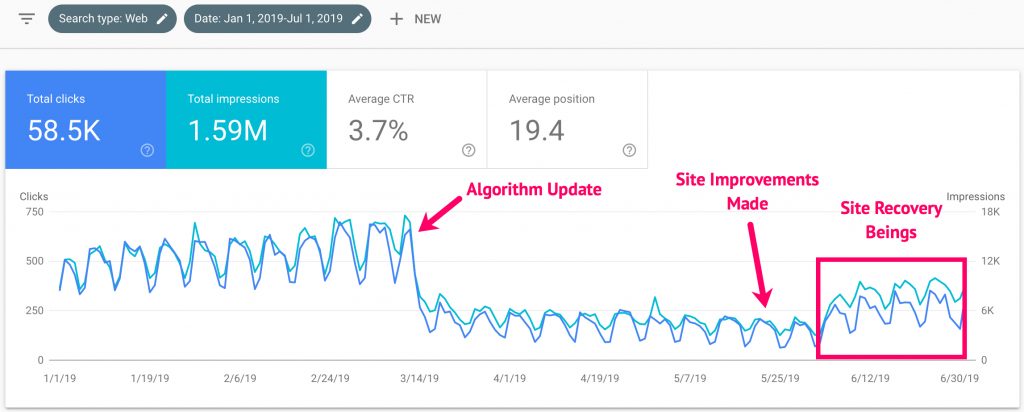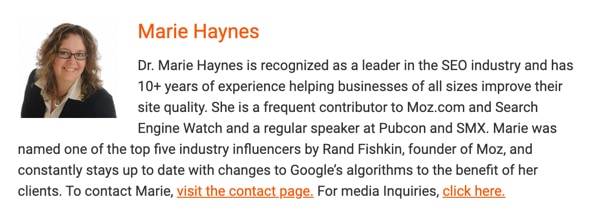E-A-T
On This Page
E-A-T stands for Expertise, Authoritativeness and Trustworthiness. E-A-T was first mentioned in Google’s Quality Raters’ Guidelines a few years back. Since then, Google confirmed that E-A-T is a part of their algorithms.
So how do you improve the Expertise, Authoritativeness and Trustworthiness of a website? Well, I’ve pieced together some things that Google employees have said and some recommendations that Marie Haynes has made. I tried these steps below out and was able to see an improvement on a site that was suffering.

Is the Author of Your Content Known for Being Trustworthy and an Expert in Their Field?
They can likely connect entity information to determine which authors are connected to sites.
– Marie Haynes
They can likely connect entity information to determine which authors are connected to sites. If your main author is known as a fraudster, for example, that could potentially be seen as a sign of low quality.
— Marie Haynes (@Marie_Haynes) October 10, 2019
It’s not about the author, it’s about the entity.
-Gary Illyes
…then you probably have an entity. "It's not about the author, it's about the entity"@methode @jenstar #Pubcon
— Marie Haynes (@Marie_Haynes) October 10, 2019
Add an Author Bio That Links to Credentials on High-Quality Sites
Make sure that each article on your site include an author bio. In the bio make sure to send the message that the author is an expert and is trustworthy. You can do that by mentioning and / or linking to their training, credentials and / or associations.

Link to Highly-Recognized Sites in Your Field
You can do this in places like your “our team” pages. If they mention a college, degree or association they belong to, link to those sites.
In really well researched articles that you’ve posted on the site, make sure to link to resources in your industry that back up your claims. Plus, one study showed that external links can have a positive impact on SEO. Check out the study here: https://www.rebootonline.com/blog/long-term-outgoing-link-experiment/
Make Sure to Have a Contact Page
Q: Does Google look for contact pages, about pages? Would not having them hurt rankings?
A: The Knowledge Graph is most likely looking for those, esp with larger entities. @methode @jenstar #Pubcon— Marie Haynes (@Marie_Haynes) October 10, 2019
https://twitter.com/JohnMu/status/1179331085097934848
Does The Content Agree With General Consensus?
If your content is making claims that are now 100% proven to be true, Google may not see that content as high-quality or trustworthy.
Q: Does Google use consensus for things like conspiracy theories and things like "baby oil cures cancer"? How does G recognize that?
A: "This is an area where I specifically don't want to give too much information. Some of our algorithms use entities. Entities translate to…— Marie Haynes (@Marie_Haynes) October 10, 2019
Further Education:
https://www.mariehaynes.com/eat/eat-webinar-part-one/
https://www.mariehaynes.com/eat/author-eat-webinar/
